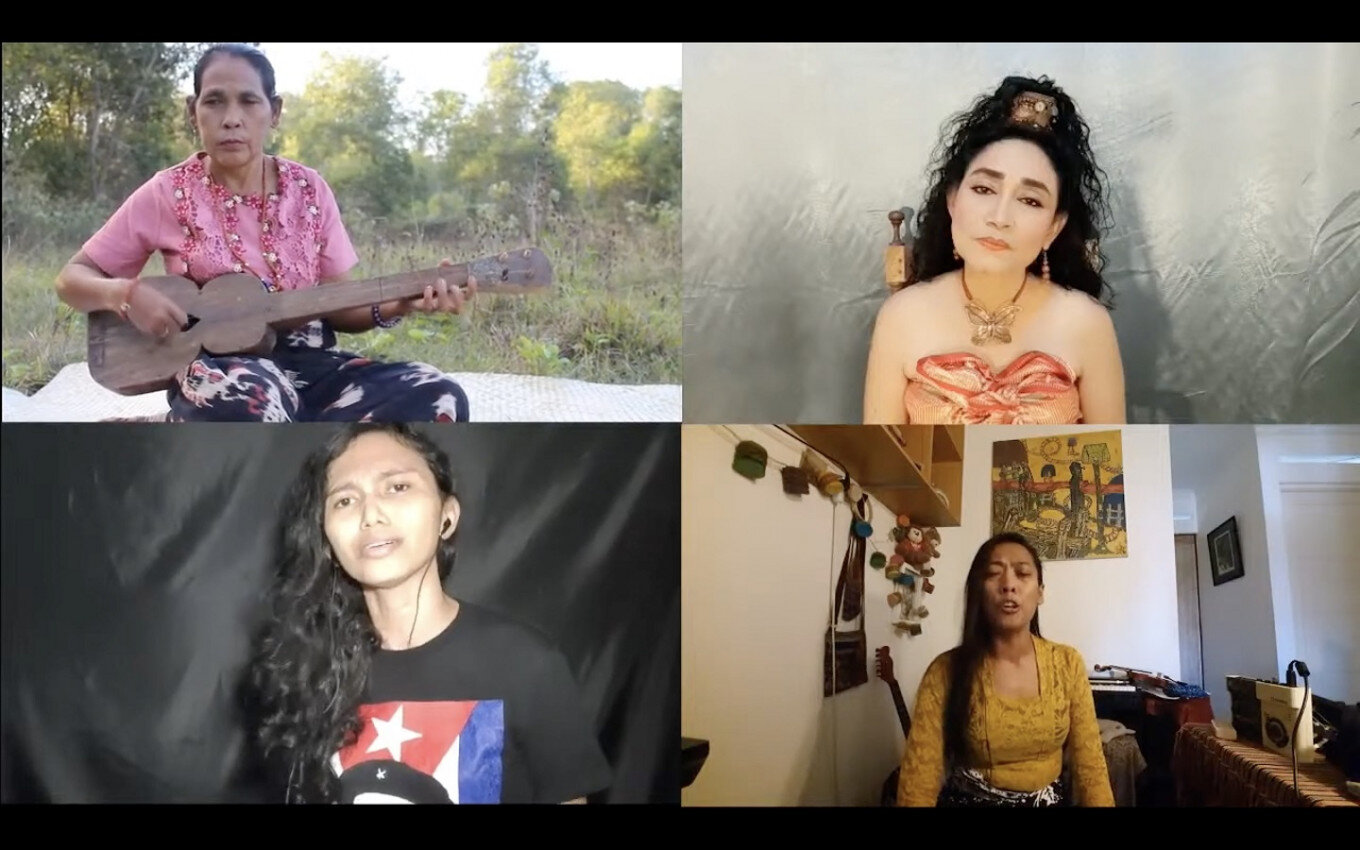Intersectional feminism, a window to women’s thought
Though many women have taken center stage in the art scene, a patriarchal system continues to linger behind the scenes.
Scriptwriter Kadek Priscanti exposed the reality during her talk in the online feminist festival, Etalase Pemikiran Perempuan (A Window to Women’s Thoughts), organized under Cipta Media Ekspresi’s Sekolah Pemikiran Perempuan (Women’s School of Thought) program.
“Culture portrays women as all-patient, all-subdued, all-loving. So, it’s taboo when they’re outspoken, it’s taboo when they tell it like it is, when in reality, channeling these emotions is normal, as humans,” Kadek said.
“This is the reality that isn’t portrayed [in art]. The reality that these women are not comfortable, and censor themselves […] Theatre can play a role in bridging this”, she added.
Data from Purple Seven, an audience engagement specialist company for the arts and entertainment industry, shows that within their sample set of theatres from 2012 to 2014, a mere 39 percent of casts and 28 percent of playwrights were women, while 65 percent of the audiences were women. This gender disparity is consistent in Indonesia as well.
Kadek was one of the speakers in Perempuan Menawar Panggung (Women Bargain The Stage), one of the festival’s sessions, which also featured scriptwriter and traditional wayang puppeteer Sri Harti, writer and theatrical artist Naniek Indarti, as well as traditional sinden singer and researcher Agnes Serfozo.
In addition to giving advice, Kadek and the other speakers talked about their own experiences and hardships in pursuing their careers in the male-dominated art industry.
The festival ran from July 24 to 26 and consisted of a series of talks and discussions.
Prominent initiators behind the festival include writer Intan Paramaditha, National Commission on Violence Against Women commissioner Andy Yentriyani, film programmer and archivist Lisabona Rahman, illustrator Cecil Mariani, playwright and director Naomi Srikandi and musician Nya Ina Raseuki.
There was also a two-part session, Riwayatmu, Puan (Your History, Women), in which panelists and participants took a look back at neglected woman figures within the Indonesian arts and culture scene. In an informative look into the lives of these people, their stories were made known and celebrated, as they were finally given the praise that they deserved.
Singer Bonita presented the life story of Utati, a woman wrongly jailed for 11 years, due to her association with the Pemuda Rakyat (People’s Youth), an organization affiliated with the now- defunct Indonesian Communist Party (PKI).


